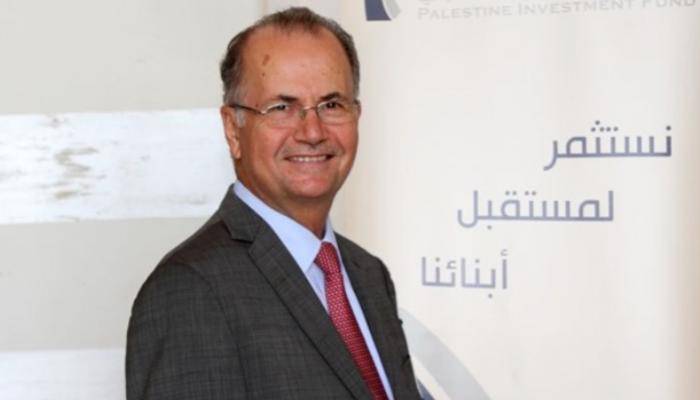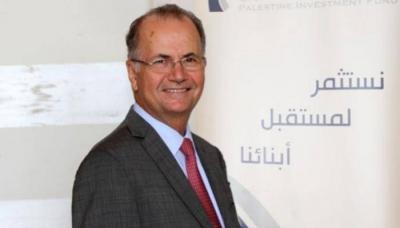Nominations for the position of Prime Minister in the Palestinian Authority are leaning toward Mohamed Mustafa, one of the most prominent Palestinian business figures and a rare ally to President Mahmoud Abbas, who also supervised the reconstruction of Gaza during the rule of the Islamic Resistance Movement (Hamas). Mustafa, an economist educated in the United States, previously managed the Palestinian telecommunications group (PalTel) and the Palestinian Investment Fund owned by the Palestinian Authority, which has assets of approximately one billion dollars to finance projects throughout the Palestinian territories. He was appointed ten years ago to help lead reconstruction efforts in Gaza after a previous war between Israel and Hamas.
Palestinian leaders may now hope that he can emerge as a unifying figure for the factions if asked to oversee the rebuilding of the sector, nearly five months after the Israeli bombardment that followed Hamas's attack on Israel on October 7. The internationally recognized Palestinian Authority, which exercises limited self-governance in the occupied West Bank but not Gaza after losing control to Hamas in 2007, aims to reunify governance of the Palestinian territories following the Gaza war. Prime Minister Mohammad Shtayyeh, a member of Abbas's Fatah party, resigned this week to pave the way for the formation of a national unity government, and Fatah and Hamas are expected to meet in Moscow this week to discuss the future path. Although Mustafa is close to Abbas, he is not a member of Fatah, which may make him less controversial. The timing of Abbas's nomination of him and the duration it will take to form the government are still unclear.
If appointed, Mustafa will face a monumental administrative and diplomatic task after large areas of Gaza have now turned into rubble, with most of its 2.3 million residents displaced and in need of aid. The West Bank is also witnessing the worst violence in decades. In addition to overseeing anticipated international aid worth billions of dollars, Mustafa will need political support from Hamas and its supporters and cooperation from Israel, which wants to eliminate the movement. The United States has called for radical reforms in the management within the Palestinian Authority, wanting it to play a leading role in governing the sector after the war.
Palestinian economist Muhammad Abu Jiyab stated, "Everyone is in a crisis, Fatah in the West Bank is in a crisis, and clearly, Hamas is also in a crisis in the Gaza Strip." He added that Mustafa (69 years old) could represent "the exit" for both.
**Larger Issue**
The Palestinian president had appointed Mustafa as the head of the Palestinian Investment Fund in 2015. He served as Deputy Prime Minister for Economic Affairs from 2013 to 2014 and headed a committee tasked with reconstructing Gaza after the seven-week war that killed more than 2,100 Palestinians. Mustafa stated in a speech at Davos on January 17, "The disaster and humanitarian impact" of the war is now much greater than it was ten years ago. Health authorities in Gaza confirm that 30,000 people have been killed, and thousands more are believed to be buried under the rubble. Israel has stated that it will never cooperate with any Palestinian government that refuses to disavow Hamas and its attack on October 7, which resulted in the death of 1,200 people and the capture of 253 hostages, according to Israeli statistics.
Mustafa described the October 7 attack in his Davos speech as "regrettable for everyone." He said, "But it also presented a larger issue... suffered by the Palestinian people for 75 years without stopping." He added, "We still believe today that establishing a state for the Palestinians is the way forward; therefore, we hope that we can achieve this this time, so that all people in the region can live in security and peace." Mustafa is a member of the Executive Committee of the Palestine Liberation Organization (PLO) led by Abbas, which recognized Israel at the beginning of the peace process in 1993 in the hope of establishing a Palestinian state on the territories occupied by Israel in the 1967 war, namely the West Bank, Gaza, and East Jerusalem.
Officials in the Biden Administration have previously stated that they urged Abbas to inject new blood, including technocrats and economic specialists, into the Palestinian Authority after it renewed its efforts to govern Gaza post-war. However, they indicated that they do not want to be perceived as pressuring for or against specific individuals. The White House has not yet responded to questions about whether it would support Mustafa's appointment or if it has any concerns.
**Moving Forward**
Mustafa stated that the Palestinian Authority can do better in terms of building more efficient institutions and more prudent governance "so that we can reunite Gaza and the West Bank." However, he added, "If we cannot remove the occupation, no reformist government or reformed institutions will be able to build a good and successful governance system or develop an appropriate economy."
Mustafa was born in Tulkarm, West Bank. He earned a doctorate in business administration and economics from George Washington University and worked at the World Bank in the U.S. capital. He stated on January 17 that rebuilding homes alone would require $15 billion. He said he would continue to focus on humanitarian efforts in the short and medium term, expressing hope for opening Gaza's borders and holding a reconstruction conference. In response to a question about the expected future role of Hamas, Mustafa also stated that "the best way forward is for the (process) to be as inclusive as possible," adding that he would like Palestinians to unite around the agenda of the Palestine Liberation Organization.




